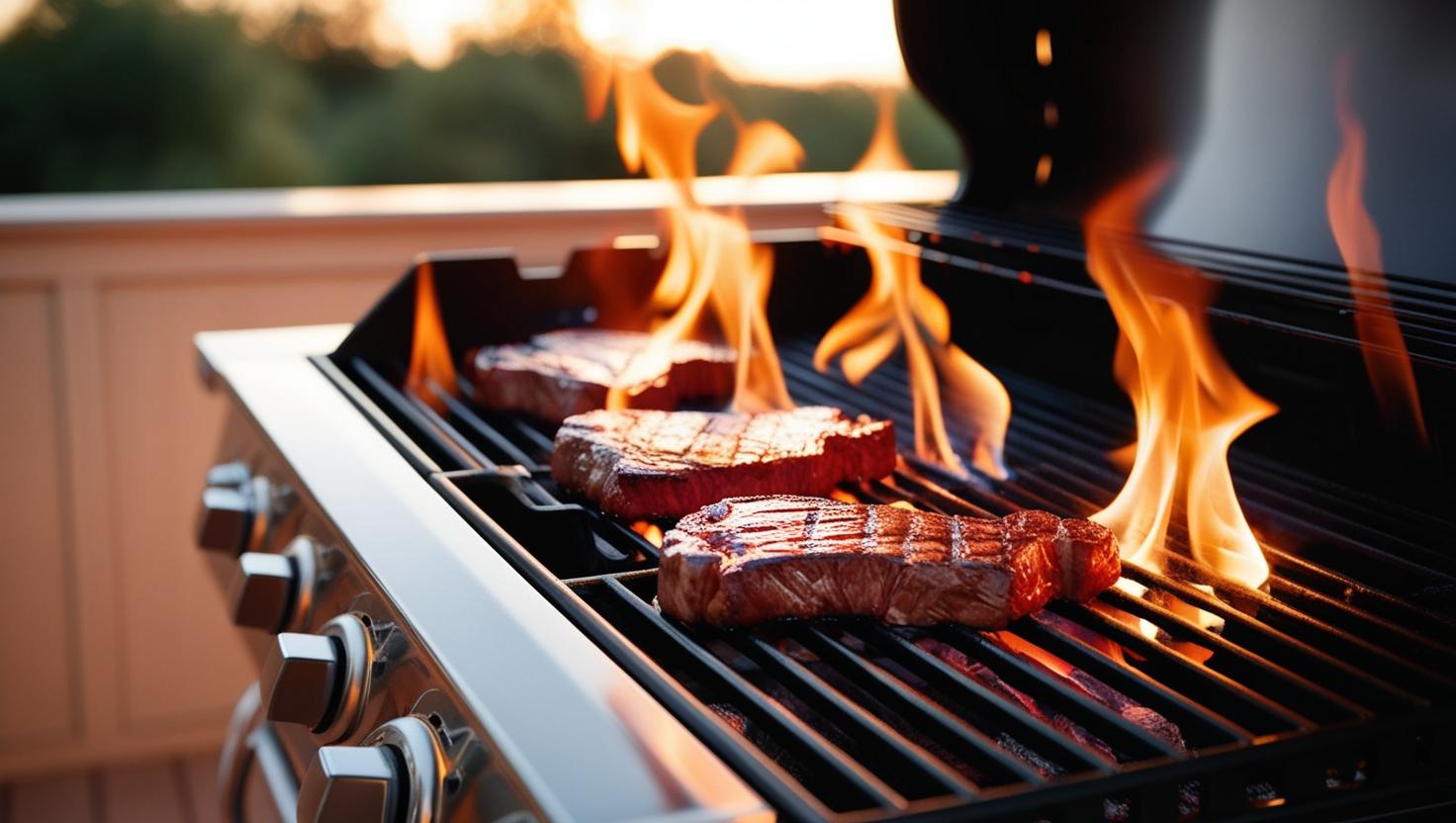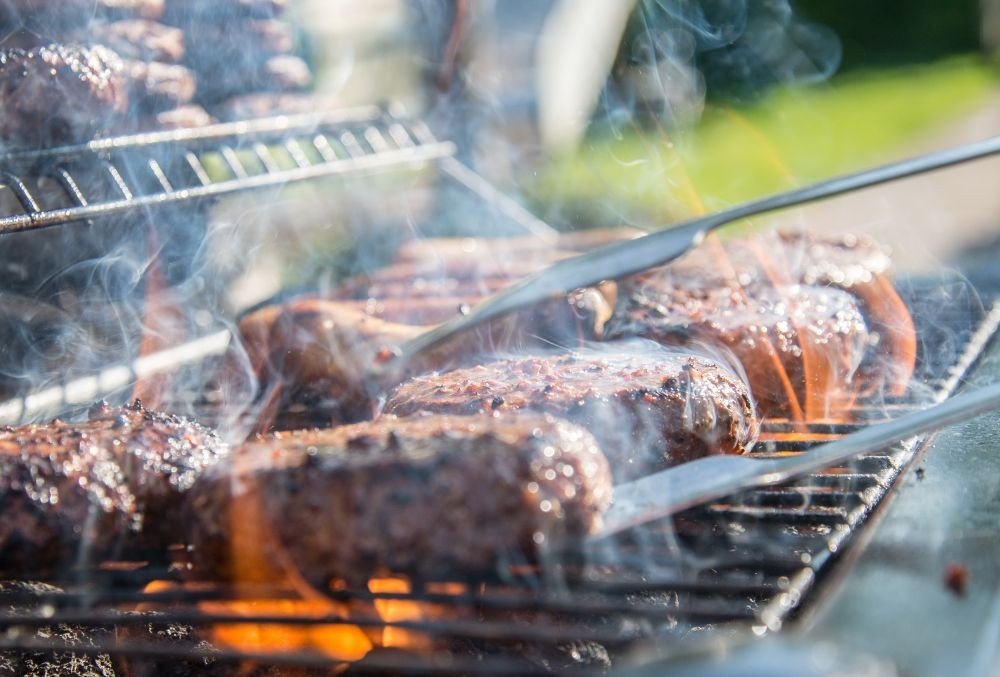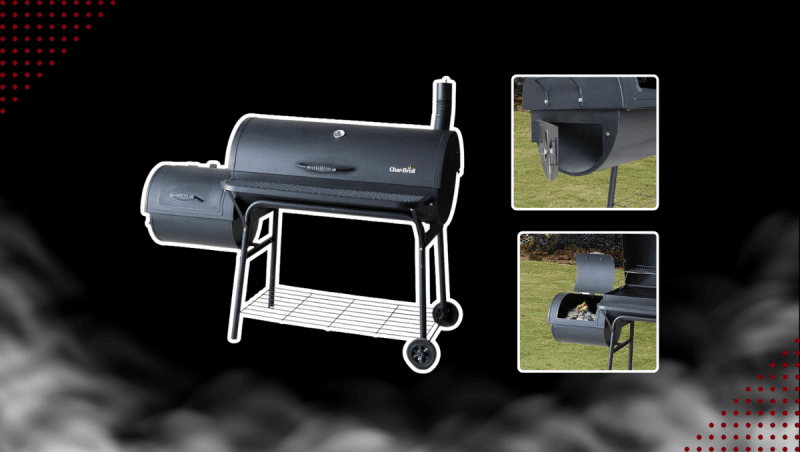Unveiling the Hidden Pitfalls: Decoding Gas Grill Warranties
Gas grills are a popular choice for outdoor cooking enthusiasts. Nothing quite beats the taste and experience of sizzling steaks, juicy burgers, or perfectly charred vegetables right in the comfort of your own backyard. However, when it comes to purchasing a gas grill, it is essential to understand the ins and outs of the warranty that comes with it.
Gas grill warranties are intended to provide peace of mind and assurance to customers. Unfortunately, many manufacturers often bury hidden pitfalls within the fine print, leaving unsuspecting consumers in a state of frustration and disappointment when issues arise. In this article, we will delve into some of these concealed drawbacks and help you navigate the complexities of gas grill warranties.
1. Limited Coverage and Duration
One of the most common pitfalls of gas grill warranties is their limited coverage and duration. While manufacturers may boast about "lifetime warranties" or "extensive coverage," a closer examination of the details may reveal significant limitations. These limitations often include specific exclusions for certain parts or components, leaving customers responsible for repair or replacement costs.
Moreover, warranties are often only applicable for a specific duration, which may be shorter than anticipated. Manufacturers might limit coverage to a few years, leaving consumers without protection for their investment in the long run. It is crucial to carefully review the warranty terms and conditions to ensure you have a realistic understanding of the coverage provided.
2. Stringent Conditions and Requirements
Another aspect to be wary of when deciphering gas grill warranties is the presence of stringent conditions and requirements. Manufacturers may impose strict guidelines for maintenance, operation, and even storage of the grill. Failure to comply with these guidelines, however minor, could void the warranty entirely.
Additionally, warranties often demand comprehensive record-keeping and documentation. This documentation may include proof of purchase, original packaging, and maintenance logs. Not adhering to these requirements may result in the manufacturer denying any claims made under the warranty. Therefore, it is essential to assess whether the conditions laid out in the warranty are realistic and feasible to comply with.
3. Limited Repair Options
One more hidden pitfall surrounds the limited repair options available under some gas grill warranties. While warranties may state that repairs are covered, they typically restrict or limit where those repairs can be performed. Manufacturers may insist on specific authorized service centers or technicians, which could be inconvenient or even nonexistent in certain areas.
This limitation could leave customers with extensive travel costs or in a situation where their only option is to ship the grill to the authorized center, leading to delays and further expenses. It is essential to consider the accessibility and availability of repair options before purchasing a gas grill with a restricted repair network.
Understanding the hidden pitfalls of gas grill warranties is crucial to make an informed purchasing decision. By carefully examining the warranty terms and conditions, looking for exclusions and limitations, and assessing the feasibility of meeting conditions and repair options, consumers can avoid unwelcome surprises and ensure their investment is adequately protected.
Misleading Marketing Strategies: Examining Gas Grill Warranties
Gas grills have become a popular choice for outdoor cooking enthusiasts, providing the convenience of easy ignition and precise temperature control. However, when it comes to purchasing a gas grill, consumers often overlook an essential aspect of the buying process: the warranty. While gas grill manufacturers boast about their warranties, it is crucial to analyze the fine print and understand the reality behind these marketing claims.
The Limited Lifetime Warranty Mirage
Many gas grill manufacturers pride themselves on offering a "limited lifetime warranty" on their products, a phrase that instills confidence in consumers. However, this warranty is often accompanied by several limitations and stipulations that diminish its value. Manufacturers may employ clever tactics to void the warranty, such as specifying the use of certain brand-specific accessories, prohibiting commercial use, or requiring meticulous maintenance practices that are nearly impossible to adhere to.
Furthermore, the term "lifetime" can be misleading, as manufacturers usually attach time-limited conditions to their warranties. For instance, a lifetime warranty may only cover replacement parts for a limited number of years, leaving consumers disappointed when their grill fails just outside the warranty period. These limitations make it essential for consumers to thoroughly read and understand the warranty terms before making a purchase.
The High Cost of Replacement Parts
Another aspect of gas grill warranties that demands scrutiny is the cost of replacement parts. Manufacturers often advertise that their warranty covers replacement components, leading consumers to believe they will receive these parts at no additional cost. However, the reality is often different.
Manufacturers notoriously charge exorbitant prices for replacement parts, making them an expensive burden for the customer. In some cases, the cost of replacement components may even surpass the price of purchasing a new grill altogether. This practice not only undermines the customer's faith in the warranty but also forces them to consider whether it is worth seeking replacements or if it would be more economical to replace the entire grill.
Obstacles in the Claims Process
When the time comes to claim warranty benefits, customers may face various hurdles and obstacles. Gas grill manufacturers have been known to make the claims process unnecessarily complicated and time-consuming, often requiring extensive documentation, photographs, or even inspection by authorized technicians. This arduous process discourages many customers from pursuing their warranty claims, allowing the manufacturers to escape their responsibilities.
Additionally, some manufacturers may resort to delaying tactics or claim denials, further frustrating customers who were initially attracted by the promise of a reliable warranty. These deceptive practices erode trust in the brand and leave consumers feeling cheated.
In conclusion, gas grill warranties are often deceiving marketing tools used to entice customers into purchasing their products. The limitations, high costs of replacement parts, and obstacles in the claims process indicate a lack of genuine commitment to customer satisfaction. Consumers must approach gas grill purchases with caution and carefully evaluate the actual benefits and limitations of warranties to make an informed decision.
Proceed with Caution: The Truth Behind Gas Grill Warranties
When purchasing a gas grill, one of the most important considerations for consumers is the warranty that comes with it. A warranty provides a sense of security and peace of mind that the manufacturer stands behind their product and will address any issues that may arise.
However, it is essential to proceed with caution when it comes to gas grill warranties, as not all warranties are created equal. Many manufacturers boast about their extensive warranty coverage, but it is crucial to read the fine print and understand the limitations and exclusions.
1. Limited Duration
Gas grill warranties often come with limited durations, typically ranging from one to ten years. While a longer warranty may seem appealing, it's important to understand that the length of the warranty does not necessarily indicate the quality or durability of the grill.
Manufacturers may offer longer warranties to attract customers, but they may include numerous exclusions and conditions that render the warranty practically worthless. It's important to thoroughly read the warranty terms and conditions to determine if it provides meaningful coverage for the expected lifespan of the grill.
2. Exclusions and Conditions
Even if a gas grill comes with a seemingly comprehensive warranty, it often contains exclusions and conditions that limit the coverage. Common exclusions include rust, normal wear and tear, and damage caused by misuse or improper maintenance.
Manufacturers may also require specific maintenance procedures, such as regular cleaning or the use of certain cleaning products, to maintain warranty coverage. Failing to adhere to these requirements may void the warranty.
3. Limited Component Coverage
While warranties may offer coverage for the entire grill, it is common for manufacturers to provide limited coverage for specific components. For example, they may offer a lifetime warranty on the stainless steel burners but only a limited warranty on other parts such as the ignition system or cooking grates.
Component coverage is an essential aspect to consider, as some of the most crucial parts of a gas grill are often subject to less comprehensive warranty coverage. This can leave consumers responsible for costly repairs or replacements, even if the overall grill warranty is still valid.
4. Customer Service and Support
Another crucial aspect to consider is the manufacturer's reputation for customer service and support. A warranty is only as good as the company behind it. Before making a purchase, it is wise to research customer experiences and reviews to gauge how responsive and helpful the manufacturer is when addressing warranty claims and inquiries.
Remember, warranties should provide peace of mind, but they should not be the sole factor in purchasing decisions. It is vital to choose a gas grill that meets your specific needs and requirements and consider additional factors such as build quality, reputation, and customer reviews.
Proceed with caution when evaluating gas grill warranties, and always read the fine print. By understanding the limitations, exclusions, and duration of the warranty, you can make an informed decision and ensure your expectations align with the actual coverage provided.
Gas Grill Warranties - The Less Said, The Better
The proof of the pudding, so to speak, is the warranty coverage. Generally, the better the burner, the better the warranty.
If this statement is true, then the grill company is willing to stand behind their burners to the point where they will replace their burners for whatever reason for as long as you own the grill, right?
You would assume so, wouldn't you?
So why would a company then limit the conditions where this would be true? There are several valid reasons, among them hostile environment, misuse and abuse.

A hostile environment is a situation where the burner is subjected to forces not within the design intentions, like grilling on the planet Venus, or under water, or inside a burning garage, or something like that. It's an out for the company, especially when you push the envelope. Actually, it is most commonly defined as a grill installed next to a swimming pool; the chlorine in the water has a tendency to do nasty things to grills.
Misuse would be using the grill in a way that is not specified by the manufacturer as "proper," like using the rotisserie at the same time that you have the lower burner grilling a steak. Another way is to grill while the grill is not level. Or another way would be to use the grill when it is dirty.
Abuse is generally an extreme thing, but some people will actually abuse their grill when it doesn't work right. Then they try to get recompense from the manufacturer, retailer, or both, for the harm the abuse creates. Most of the time, it is because the owner doesn't take the time to read the owner's manual. But, just like what you see on "CSI," they can tell if you have tried to adjust the fuel mixture with a sledge hammer rather than a small screwdriver.
These are all valid reasons not to cover a product. Consumers can - and will - come up with the craziest of situations where the grill will fail, and it's the manufacturer's fault that they didn't consider the possible failure for the given condition.
That's the primary reason that they will not cover malfunction of the grill when it has been installed in Timmy's treehouse, even though it has been leveled properly, cleaned thoroughly and consistently, and generally cared for like a member of the family: they are not willing to pay for your car after the grill caught the tree on fire, which caught the house on fire, which caught the tree in the front yard on fire, which collapsed on your car in the street - 50 yards.
Here's the deal: the more limitations placed on the warranty, the less faith the manufacturer has in the burner, or the less money they are willing to part with if the burner were to fail. To cover themselves, the company will write in exceptions to what they will not honor; the idea that a "more defined" warranty is a better warranty is false: the "more defined" the warranty, the less that company is willing to cover.
To demonstrate this, the DCS and Star burners are virtually identical; the only difference is the feeder tube, which is ramped up into the burner tube on the DCS and straight in to the burner tube on the Star. You would think that they would carry a similar warranty, but they do not: Star warrants their burner for burn-through, and DCS does not!
Guess who has the more verbiage in their warranty? Yup. DCS. What's the difference? More exclusions.
Let's take a look at the warranties for the burners we have tested so far:
Fire Magic: Warranted for as long as you own your Fire Magic grill; includes burn-through; "limited to personal, family or household use only"; non-transferrable.
Lynx: Lynx's warranty states: "The solid brass grill burners are warranted to be free from defects in material, workmanship and structural integrity when subjected to normal domestic use and service for the lifetime of the original purchaser." Includes burn-through; no replacement burners are available for purchase, notably.
Alfresco: "Lifetime warranty to the original purchaser, covers the main grill burners. This does not apply if the unit was subject to other than normal household use. Alfresco Gourmet Grills will NOT cover damage resulting from accident, alteration, misuse, abuse..."
The special section on "Orifice Cleaning" states: "Use a needle to clear any debris. Be extremely careful not to enlarge the hole or break off the needle." Another section of the warranty states: "Clean appliance after each use, and check for blockages, especially at the burner orifices..."
DCS: "Lifetime warranty on all stainless steel components, including stainless steel grill burners..." and: "For proper lighting and performance of the burners keep the ports clean." The DCS warranty does not cover burn-through.
Conclusions:
- Cast burners consistently outperform sheet metal burners.
- A better warranty is NOT more defined, but less defined.
- Look for a warranty that covers burn-through. This would mean that Lynx, Fire Magic and Star are the best-warranted burners on the market.



